Students were taken outside to hear the sounds of the mountains. “Listen,” they were told, “Just Listen!”
Nature was one of the primary teachers of this special class offered by Catholic Extension Society in Puerto Rico. The 10 students were participants in Catholic Extension Society’s Encuentro y Misión, a transformational leadership training program for Latino young adults around the country, funded by the Henry Luce Foundation. For three intensive days, they studied Laudato si’, Pope Francis’ 2015 encyclical on care for Earth, our common home. Of course, they had to begin outside.
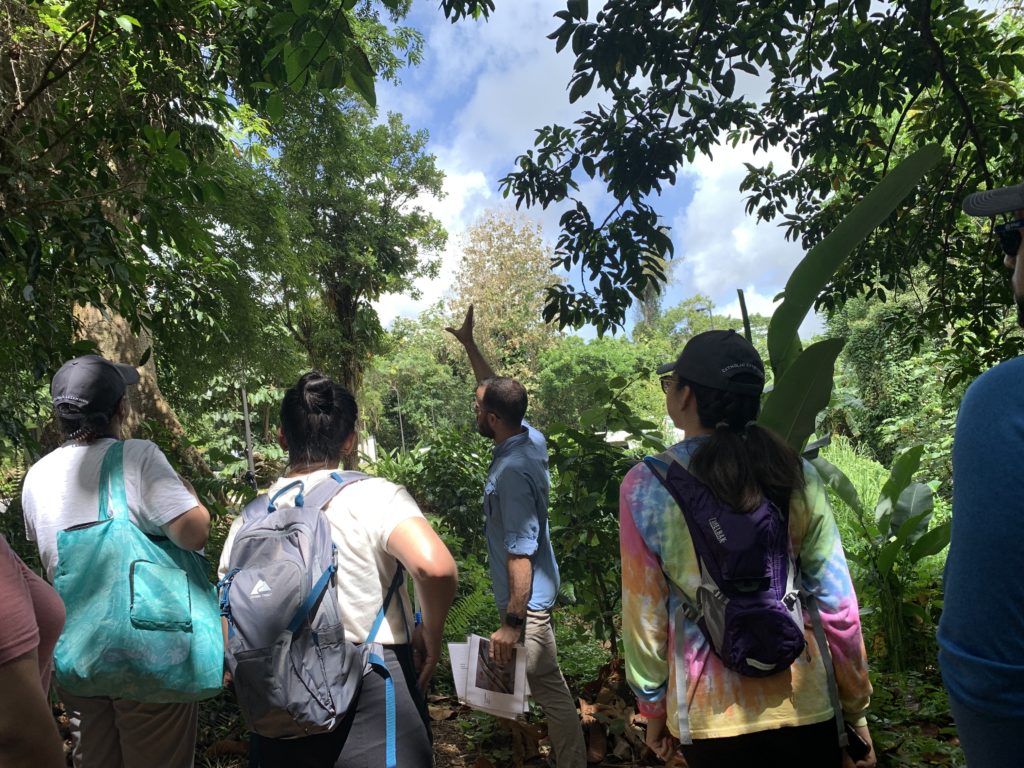
The trees and plants, the native birds and the iconic singing frogs (“coquis”) were part of their open-air classroom in Puerto Rico’s Yunque National Forest, the only tropical rainforest in the national park system. No laptops or cell phones were needed. Only hiking boots, back packs and ponchos.
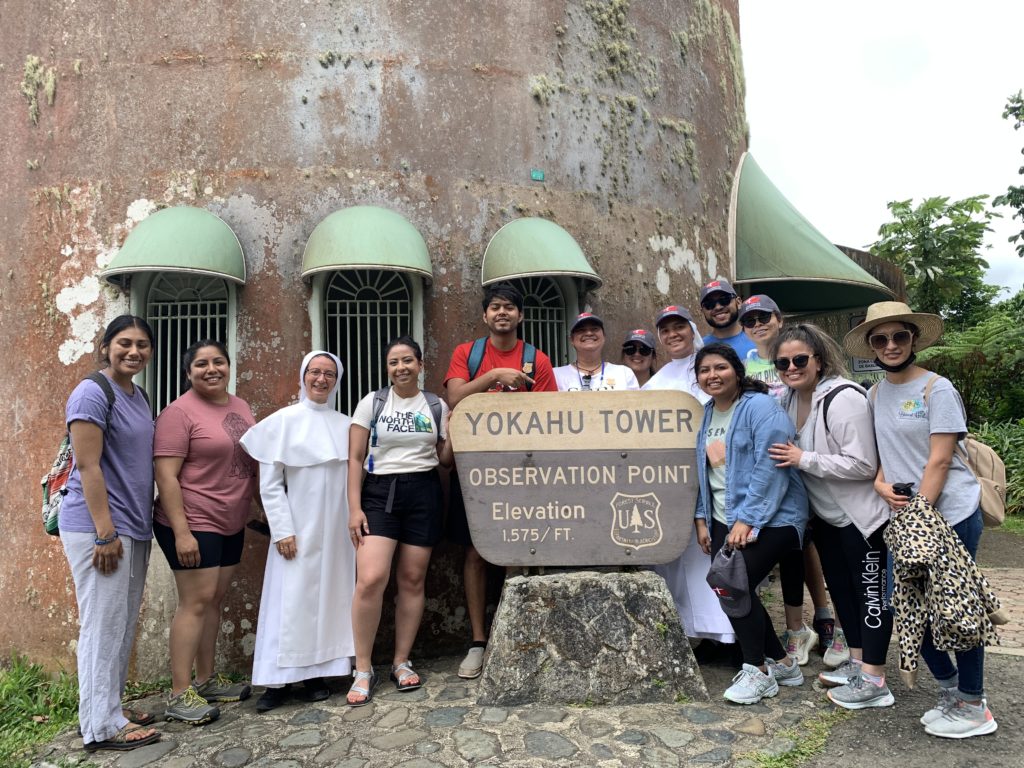
Drawing inspiration from St. Francis of Assisi’s famous canticle, Pope Francis’ Laudato si’ is considered by many as a masterwork. Almost 42,000 words long, it is addressed not just to Catholics or Christians, but all of humanity. It is a wake-up call, a summons for swift and unified global action to protect God’s creation. Nature, Pope Francis writes, is a gift from God that must be conserved, protected and developed with gratitude and stewardship.
The encyclical talks about climate change and the effects it has on the most vulnerable people on the planet, everything from rising sea levels, extreme weather events, prolonged drought and famine. Laudato si’ is an invitation to a world-wide ecological conversation that links our encounter with Jesus to be made evident in the relationship with the world around us.
So it is in relationships that ecological responsibility is best learned. An immersion experience is the key to seeing those relationships come together.
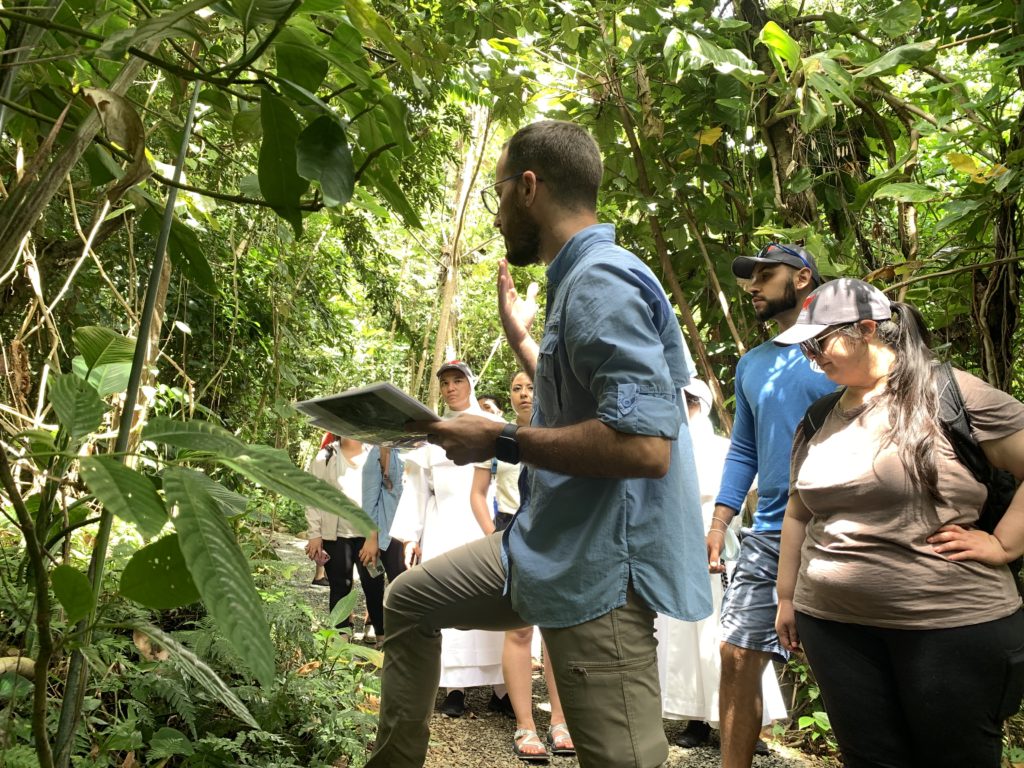
The students began by being immersed in God’s creation beginning with their lodging in the mountains. This was organized by a young Dominican sister, Yelitza Ayala, who hosted them in her childhood farming community of Aguas Buenas, her hometown. She and her neighbors who live close to the land pitched in to meet students, open their homes, and share home-cooked meals with them – an immersion of all the senses.
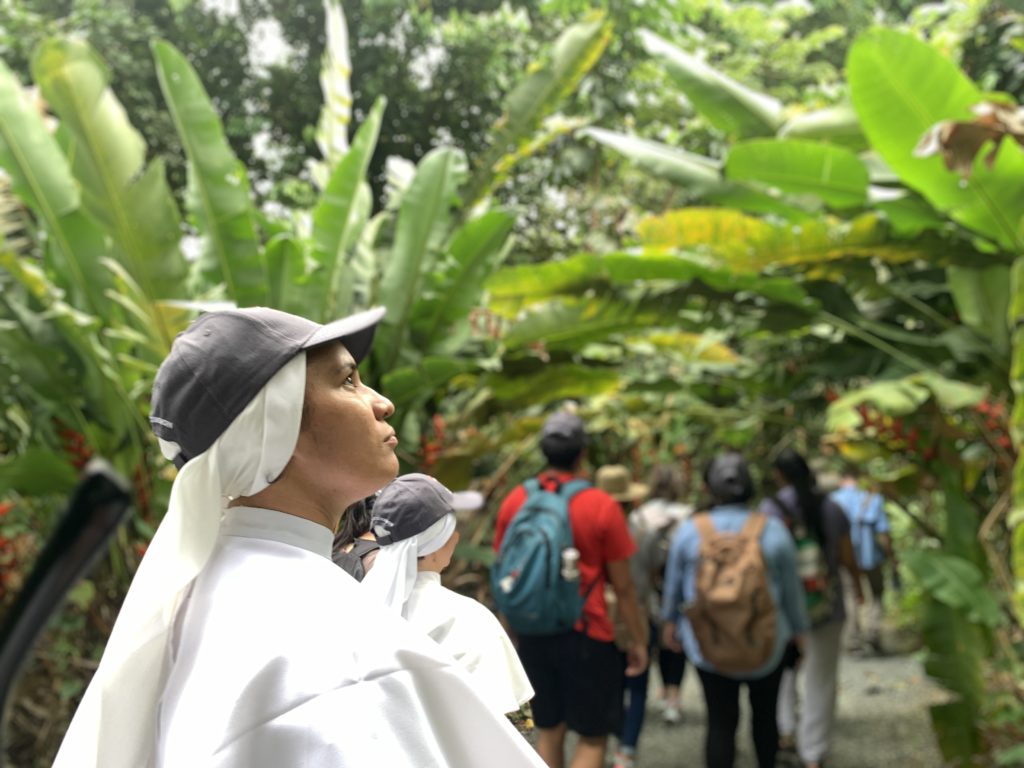
They learned a great deal from the people of the mountains. Students spent time visiting families and many elderly and sick individuals, who opened their hearts and told their stories of resilience, faith and love for their home.
Their simplicity, their generosity, their reliance on each other and on the fruits of God’s creation were all part of the lesson plan.
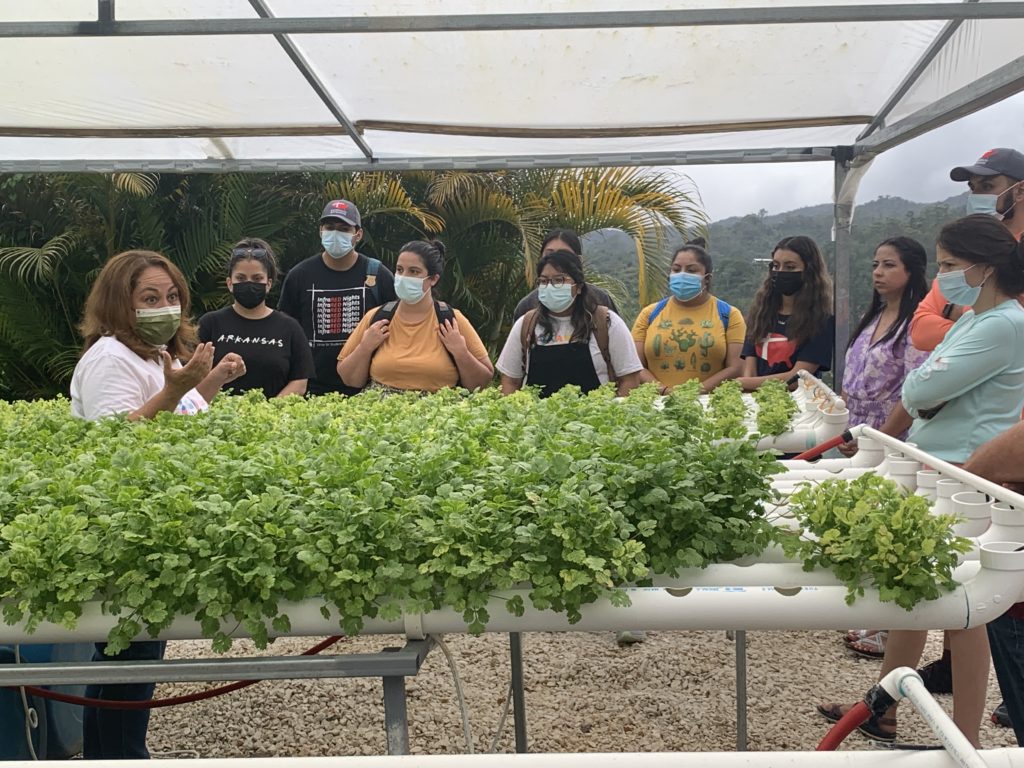
Apart from the nature, the people of the mountains and the Pope’s encyclical, the students also had other great teachers along the way with wisdom to share.
Professor Carlos A. Muñiz Osorio, Ed. D., from the Universidad del Sagrado Corazón, spoke about the special connections between the land and the people, and the island’s complex history as a colonized land.
He gave concrete examples of what Pope Francis means when he talks about “an economy of exclusion.” Such as the production of certain medicines and other products made from and in Puerto Rico, which are taken to the US, and then sold back to the Puerto Rican people at prices that the working poor cannot afford.
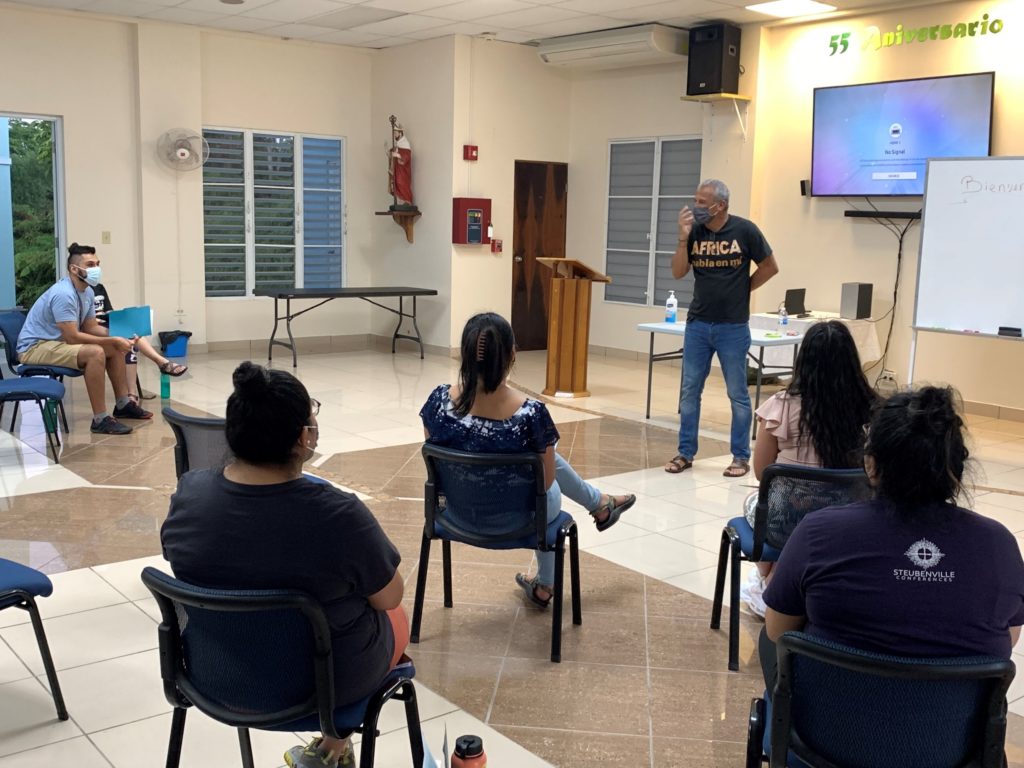
Students also received a lecture by Alexis Massol-González, recipient of the prestigious Goldman Environmental Prize. Dr. Massol-González established Puerto Rico’s first community-managed forest reserve, Bosque del Pueblo (People’s Forest) and when he met the Encuentro y Misión young adults, he was moved to tears to see their passion and commitment.
Professor Alexis discussed his decades of activism and the long-hard battles that they have fought to establish protected areas. The students learned how matters of ecology impact the poor.
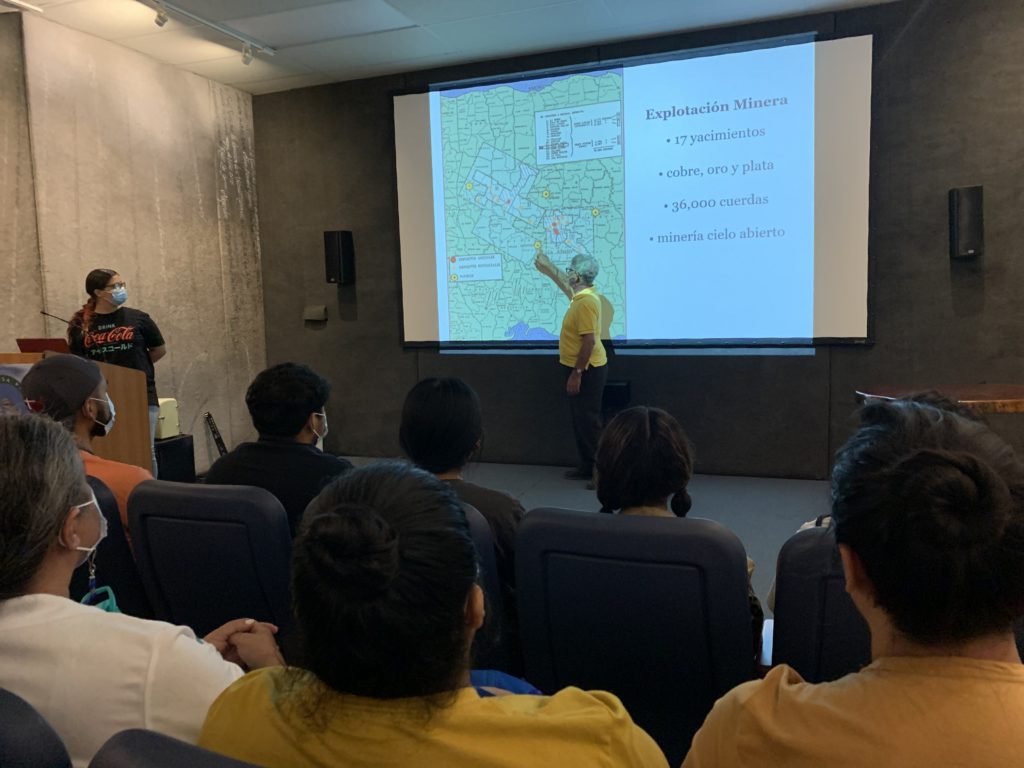
He challenged the students with the idea that defending and protecting their land was equivalent to defending and protecting one’s culture, identity and traditions. For him, failing to protect their land from exploitation would mean failing to protect the Puerto Rican people. Many of the quotes he delivered were repeated often by the students: “La protesta se vuelve en propuesta” (The protest becomes a proposal) and “La fe sin obra es fe muerta.” (Faith without action is dead). These were not theoretical propositions but a call to action.
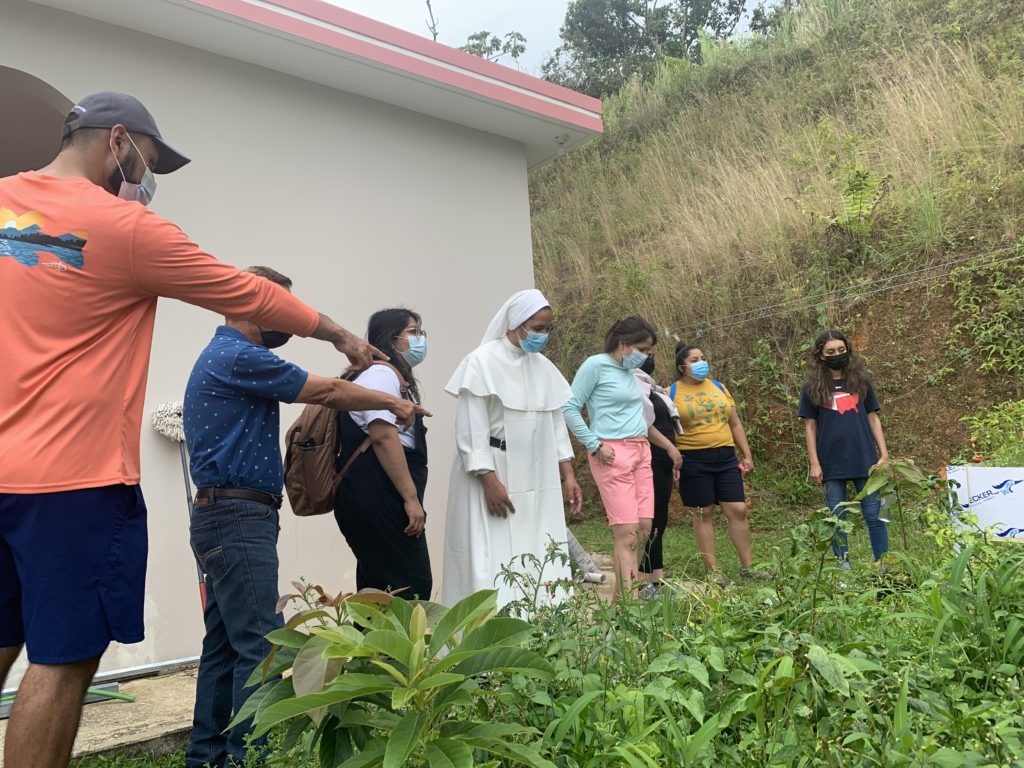
At the conclusion of the experience, parishioners came from all over to a small chapel in Aguas Buenas to celebrate the Eucharist and share a traditional feast (“jibaritos”) to reflect all that they had been taught. The lessons seem to stick.
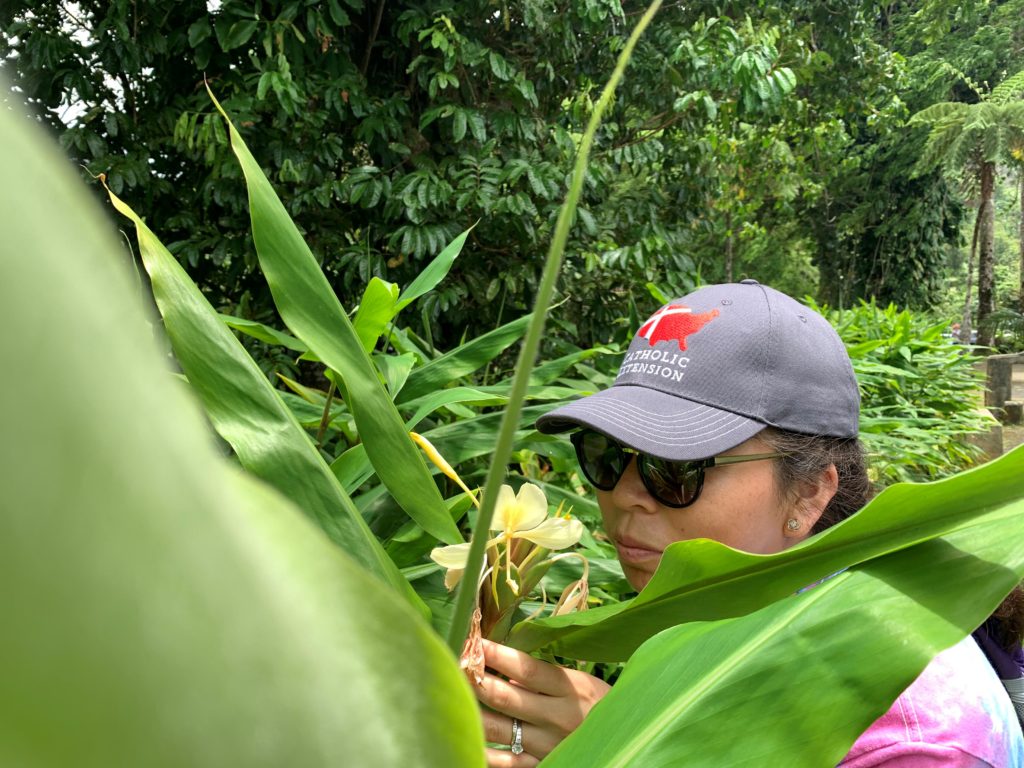
“The immersion experience was a great life-teaching moment for me as it opened my eyes to see, feel and understand what people mean when we say ‘the world is God’s creation.”
– Gloria Avilez, Diocese of Kalamazoo, Michigan
“The immersion experience Laudato si’ helped me visualize what was possible in my own community in terms of projects I can develop as a young adult group for the Church,” said Ricky Nicanor Mendoza of the Diocese of Beaumont, Texas.
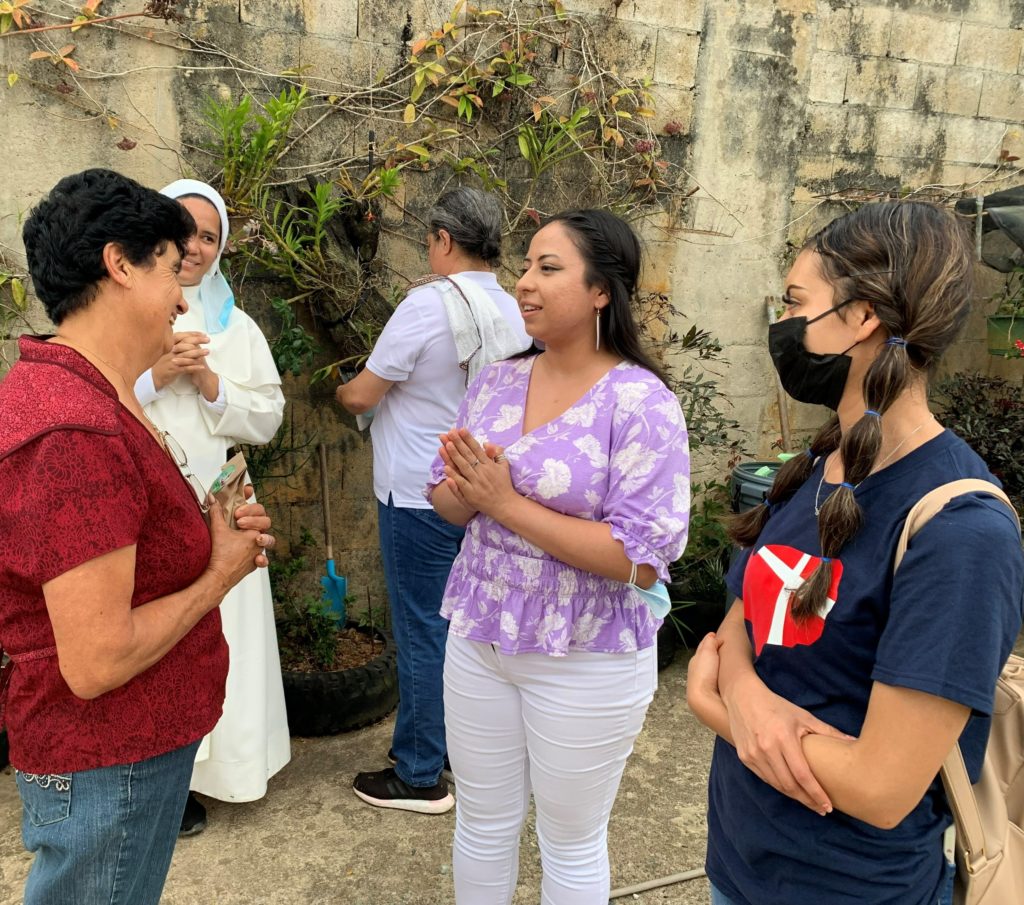
“I’m more confident in wanting to be more involved and willing to make a change.”
– Giselle Montalvan (center), Diocese of Boise, Idaho
“Be praised, my Lord, for all your creation
and especially for our Brother Sun,
who brings us the day and the light;
he is strong and shines magnificently.”
St. Francis of Assisi – Canticle of the Sun
Our donors help engage young Catholics in leadership programs like Encuentro y Misión to help them discern how they are being called to build a stronger Church and world. Donate here to support our work.


